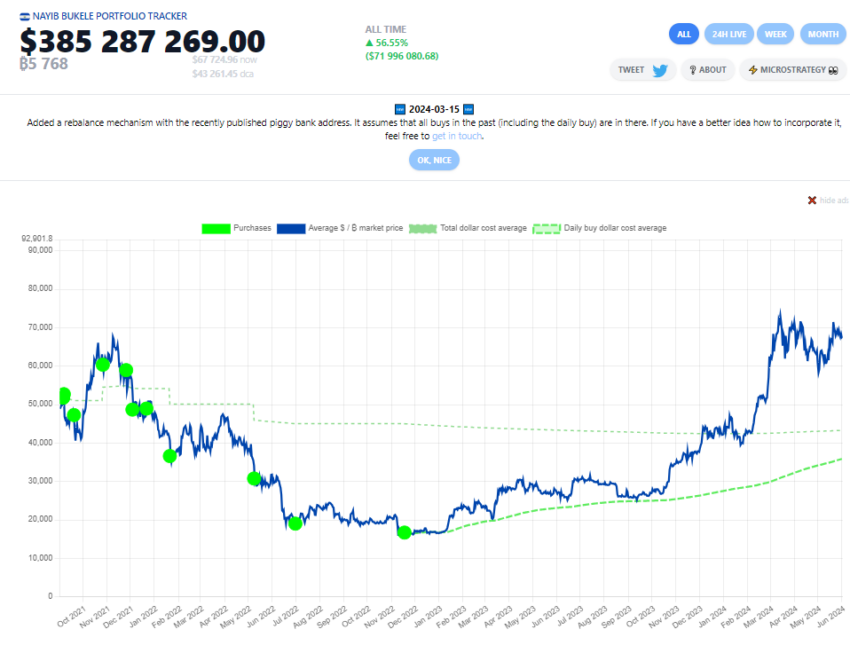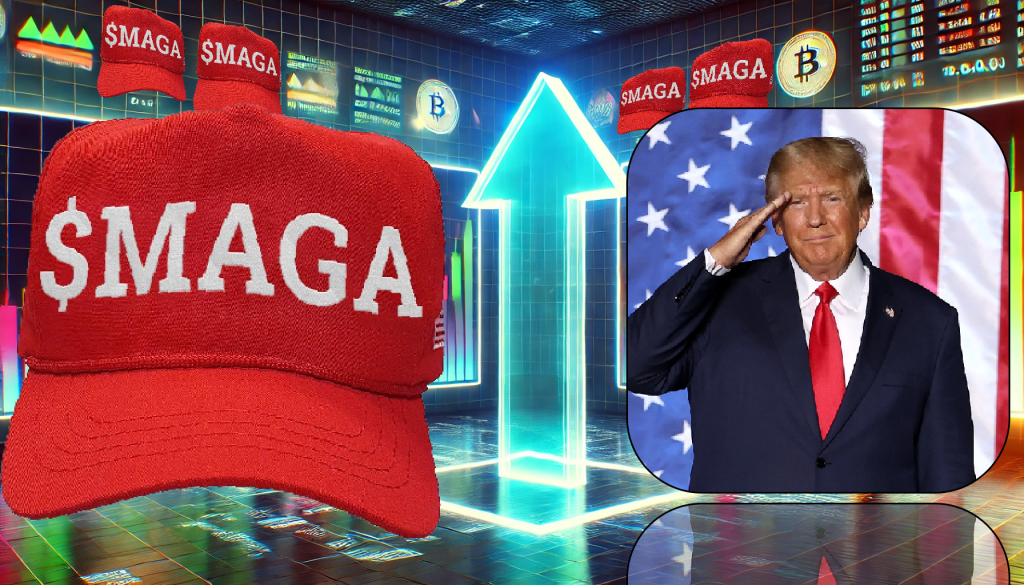El Salvador’s Bukele Begins Second Term, Pledges Economic Transformation with Bitcoin
On June 1, President Nayib Bukele began his second term at the National Palace in San Salvador, riding on a popularity that has strengthened his power and influence in El Salvador.
In his speech, the 42-year-old president vowed to take decisive action to address the Central American nation’s economic challenges. This pledge follows his earlier success in tackling gang violence during his first term.
How El Salvador’s Economy Will Scale With Bitcoin
Many Salvadorans are optimistic that he will fulfill his re-election promise of ushering in a “period of prosperity,” driven by his pro-Bitcoin policies. After a recent meeting with Bukele, ARK Invest CEO Cathie Wood predicted that El Salvador’s GDP could increase tenfold in the next five years, thanks to his focus on Bitcoin and artificial intelligence.
“President Bukele’s determination to turn El Salvador into an oasis for the bitcoin and AI communities — two of the biggest economic and technology revolutions in history — is the reason I believe that its real GDP could scale 10-fold during the next five years,” Wood wrote.
Max Keiser, a senior Bitcoin adviser to President Bukele, outlined how the country could achieve this growth. He envisions El Salvador operating on a circular Bitcoin standard with no debt and generating 10% of the global Bitcoin hash rate using geothermal energy from volcanoes.
“The country’s wealth will be controlled by Salvadorans running their own Bitcoin nodes. Central bankers will have no power, and the IMF will be long gone,” Keiser added.
Read more: What Is Bitcoin? A Guide to the Original Cryptocurrency

Bukele has been dubbed the “first Bitcoin president” by many in the industry. In 2021, he made Bitcoin a legal tender after the passage of the historic “Bitcoin Law.” Since then, citizens have been able to use Bitcoin for goods, services, and taxes. Additionally, the nation earns the flagship digital asset through various services, including a citizenship passport program, mining, and government services, which convert Bitcoin to US dollars for local businesses.
Already, Bukele’s initiative has significantly boosted the country’s economy, with its BTC treasury showing over $70 million in unrealized profit.
Indeed, other countries are taking notice and exploring how to replicate this success. Last week, BeInCrypto reported that leading Argentine officials met with their Salvadoran counterparts to discuss Bitcoin regulation strategies used in El Salvador.
The post El Salvador’s Bukele Begins Second Term, Pledges Economic Transformation with Bitcoin appeared first on BeInCrypto.





